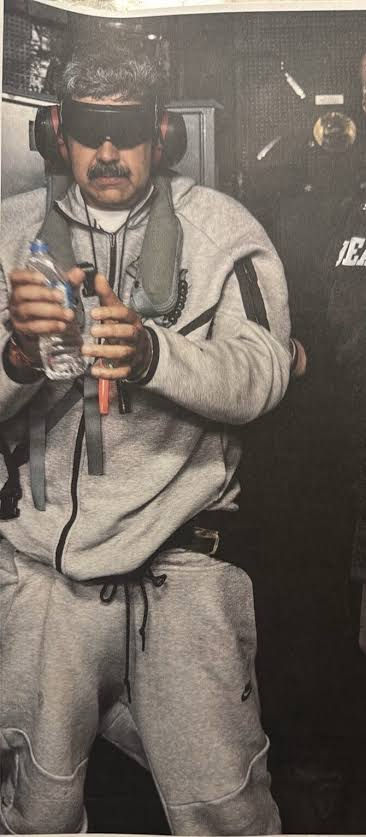The meeting between Putin and Biden in Geneva
- Sebastian Palacios.

- Jun 17, 2021
- 4 min read

Relations between the two superpowers are at their lowest point since the end of the Cold War. The United States has imposed a dozen economic sanctions on Russia in the last decade. The reasons are the war in Ukraine and Russia's annexation of the Crimean peninsula in 2014, the intervention in the United States elections in 2016, the constant cyberattacks on US companies, and the repression of Russian political opponents. About this situation, Biden has publicly branded Putin as a 'soulless murderer', something never seen in the entire diplomatic history between the United States and Russia, even at the worst moments of the Cold War.
During the four-hour meeting held in Geneva under the auspices of the Swiss government, both leaders were uncomfortable interacting with each other. Both leaders presented separately the agreements reached during the meeting. The US delegation refused to hold a joint press conference as is normally done in such a bilateral meetings. The results of this meeting were:
1. The return of the ambassadors to their respective positions in Moscow and Washington D.C. after they were expelled in April this year due to the sanctions imposed by Biden in response to new alleged Russian cyberattacks. Putin said that "this problem is already solved" and that the date of the return of the ambassadors was purely a technical question.
2. Return to the Strategic Arms Reduction Treaty, START III, which had been canceled by Trump in 2019. This treaty has the objective of achieving 'Strategic Stability' as both countries call it, allowing delegations from both countries to supervise their respective military arsenals, and thus move towards a gradual reduction in the number of weapons. Biden declared that what the United States wants is a "stable and predictable" relationship with Russia, and Putin that "both countries, having the biggest and best weapons, have a shared responsibility to avoid a world conflict at all costs."
3. The war in Ukraine between the nationalist government and pro-Russian separatists has claimed the lives of more than 14,000 people since 2014, including the shooting down of a Malaysia Airlines plane flying from Amsterdam to Kuala Lumpur in July this year. Both leaders agreed that the solution is to allow elections in those conflict zones and for the separatists to reach agreements with the government of Kiev (now officially called Kyiv at the request of the Ukrainian government). Biden and Putin have differences on what the order of this process should be, but the common denominator is that they both ask that the agreements to resolve the conflict that have been signed in Minsk, Belarus, should be followed, and that Russia must reduce the presence of soldiers in the border with Ukraine. A possible entry of Ukraine into NATO, which would be a major geopolitical event, was also discussed, but no further details were provided.
4. About the Arctic, Russia and the US agreed to cooperate regarding the increasing military activity of both countries in the region. The main motivation are the discoveries of fossil energy deposits and the possible opening in a short time of a safe route for global maritime transport that would be an alternative to the Suez Canal due to the melting of the polar cap because of climate change.
5. Both countries agreed to exchange prisoners, in several cases spies, so that they can serve their sentences in their respective countries.
6. Regarding cybersecurity, Biden required that essential infrastructures, such as water and energy supplies, were never attacked again. While Putin asked him to stop the insinuations, according to him unfounded, since, according to him again, the attacks have come from places outside Russia.
At the end of the meeting, Biden stated that he does not have an anti-Russian agenda but that the two leaders are certainly not friends. Putin said on this subject that Biden and Trump are very different from each other, and that he is grateful to be able to deal with Biden because of his less impulsive personality and for having more experience.
Biden pointed out to Putin that the criticism towards Russia about the repression of political opponents is because the United States carries in its DNA the defense of human rights in the world, and that if, for example, something serious happened to Alexei Navalny, the public figure critic of Putin better known internationally, the United States would respond firmly with dire consequences for Russia. Putin has always reacted on this issue saying that Navalny was arrested because he wanted it that way when he decided to return to Russia having an arrest warrant for two criminal cases. And that the United States is very far from moralizing the rest of the world on human rights, citing the Guantanamo jail in Cuba, the death of a female protester who participated in the assault on the Capitol in January this year, systematic police violence towards African Americans, and interference in the internal affairs of other countries.
Many Republicans have classified this meeting with Putin as "useless", and that it only gives him legitimacy among the international community. While in Russia almost the entire bulk of public opinion welcomed this meeting, especially in the hope that a normalization of diplomatic relations will lead to the lifting of economic sanctions and contribute to increased security in the region.




Comments